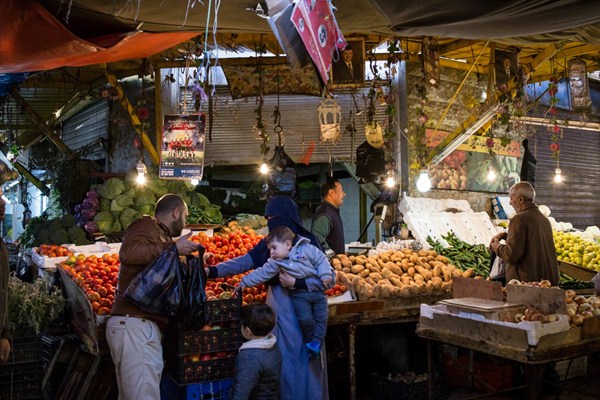Jordan’s prime minister, Hani al-Mulki, reshuffled his Cabinet on Sunday, making changes in several key and telling portfolios, including the ministries of economy, labor and interior. The shakeup comes amid a period of public uneasiness over the direction of the country’s economy and who should bear the burden resulting from years of economic mismanagement by largely unaccountable policymakers.
In early February, the government raised the sales tax from 6 to 10 percent on more than 160 basic food items, services and commodities ranging from eggs to electricity. Brand new sales taxes were also introduced on agricultural products that were previously exempt, such as fertilizers and animal feed, angering farmers who vented their frustrations in front of government buildings. Ten days later, the government eliminated a subsidy on flour, doubling the cost of bread and sparking an outcry from the wider public.
The government has tried to frame the end of the bread subsidy as good for Jordanians, saying that non-citizens were unfairly benefiting from public spending and that the government would redirect the savings to them. But overall, the perception of the latest reforms has not been favorable and trust in the government’s ability to turn things around is extremely low.

